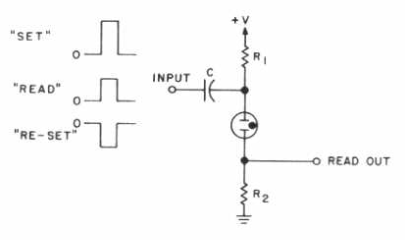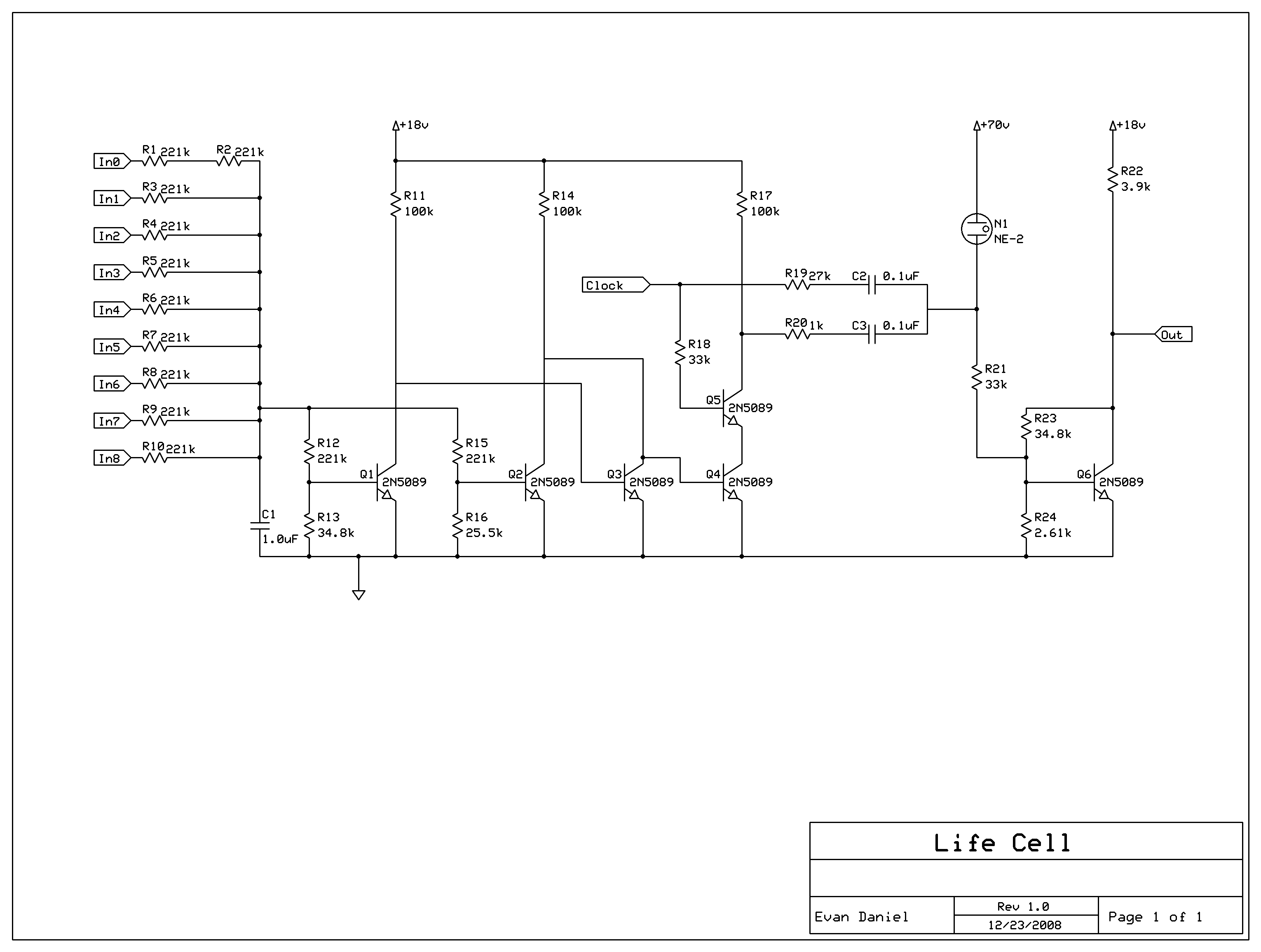
Like other gas discharge lamps, the neon bulb has negative resistance; its voltage falls with increasing current after the bulb reaches its breakdown voltage. Therefore, the bulb has hysteresis; its turn-off (extinction) voltage is lower than its turn-on (breakdown) voltage. This allows it to be used as an active switching element. The circuit below demonstrates a basic neon lamp memory. The supply voltage V is between the breakdown and the maintaining voltages of the lamp so that in the quiescent condition the lamp is non-conducting.

If a positive "set" pulse is now applied to the input the lamp will fire and with the supply voltage greater than the maintaining voltage, the lamp will reming conducting. The amplitude of the set pulse must be large enough to fire the lamp and thus must be greater than the difference between the firing voltage of the lamp and the supply voltage. So
Vset > VF - V
where
VM < V < VF
To read out of the memory circuit a positive "read" pulse is applied to the input. The aplitude of the "read" pulse must be less than that required to fire the lamp if the lamp is non-conducting. So:
Vread < VF - V
If the lamp has been previously fired by a "set" pulse the "read" pulse will be passed through the lamp to the output, however, if the lamp has not been fired, the "read" pulse will be blocked by the non-conducting lamp and the lamp and the output will remain at zero.
Readout can also be accomplished with the use of a light detector such as a photocell or photodiode, avoiding the need to use a read pulse.
The reset the memory circuit a negative "reset" pulse is applied to the input. The magnitude of this pulse must be sufficient to drop the voltage across the lamp below the extinguishing voltage.
| Vreset | > V - VE
Evan Daniel made a "game of life" from Neon Lamps, demonstrating their use
as memory
elements:
https://www.youtube.com/watch?v=wlDrr4VRlQ4
There are no microprocessors or integrated circuits. The neon lamps act as both the indicator and the memory, so you are literally seeing the state of the cells. In0 is the output of the cell; In1-In8 are its neighbors. It needs two power supply voltages (+70 and +18). Clock is a square wave off the 18V, run it slow. 70V is low precision. 18V and is higher precision. Most of the resistors are 1%, hopefully which ones matter is clear. Transistor type matters; others would work instead, I suspect, but you might have to tune the resistor values. 2N5089 was chosen instead of 2N3904 for higher gain, which is needed. The edit wand is just the clock signal, AC coupled via 0.1uF cap, touched to the lower leg of the lamp. If things don't run just right, start by tweaking your 18V supply voltage.

Also: Lego Logic Blocks / Optical NAND
See also:
| file: /Techref/mem/neonlamp.htm, 4KB, , updated: 2017/1/3 16:24, local time: 2025/10/16 17:51,
216.73.216.53,10-2-207-162:LOG IN
|
| ©2025 These pages are served without commercial sponsorship. (No popup ads, etc...).Bandwidth abuse increases hosting cost forcing sponsorship or shutdown. This server aggressively defends against automated copying for any reason including offline viewing, duplication, etc... Please respect this requirement and DO NOT RIP THIS SITE. Questions? <A HREF="http://www.massmind.org/techref/mem/neonlamp.htm"> Computer Hardware Memory with Neon Lamps</A> |
| Did you find what you needed? |
Welcome to massmind.org! |
|
Ashley Roll has put together a really nice little unit here. Leave off the MAX232 and keep these handy for the few times you need true RS232! |
.